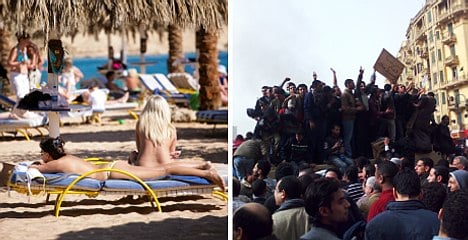Kjellin argued on Thursday that tourism can be a “good and democratic force,” making a link between the high volumes of tourists to countries such as Egypt and Tunisia and the ongoing pro-democracy movements.
“The fact that people travel and meet across cultural, religious and political boundaries is a good thing. Visits, even to dictatorships, I believe helps to destroy them. I would argue that tourism, major global travel, is in itself a positive force,” Kjellin wrote in an opinion piece in newspaper Dagens Nyheter (DN) on Thursday.
He continued to contrast these examples with the relative silence of pro-democratic voices in less-visited north African neighbours Libya and Algeria.
He also referred to the role that tourism played in liberating countries such as Portugal and Spain from dictatorships and cited Cyprus’ admission into the EU and Turkey’s pending membership as examples of the way the industry can help build democracy.
Swedish travel agencies have cancelled more than 70,000 trips to Egypt since uprisings began in the country late last month, according to figures compiled by the Dagens Industri daily on Friday. Travel operator Fritidsresor estimates that it has lost about 30 million kronor ($4.61 million) as a result.
Kjellin drew attention to the difference in the response of the Swedish public to the tsunami disaster in December 2004 in Thailand, a major holiday destination for Swedes, and the relatively weak assistance offered to the devastating earthquake that took place soon after in Pakistan, to which few Swedes travel.
“Receiving visitors presumably raises in many an interest in freedom and democracy. The encounters that tourism creates are a good influence. All conversations and exchanges of knowledge, thoughts and ideas must reasonably affect the country’s development,” he wrote.
Kjellin concluded by questioning what would happen in Burma or North Korea if those countries opened their borders more to tourists.



 Please whitelist us to continue reading.
Please whitelist us to continue reading.
Member comments